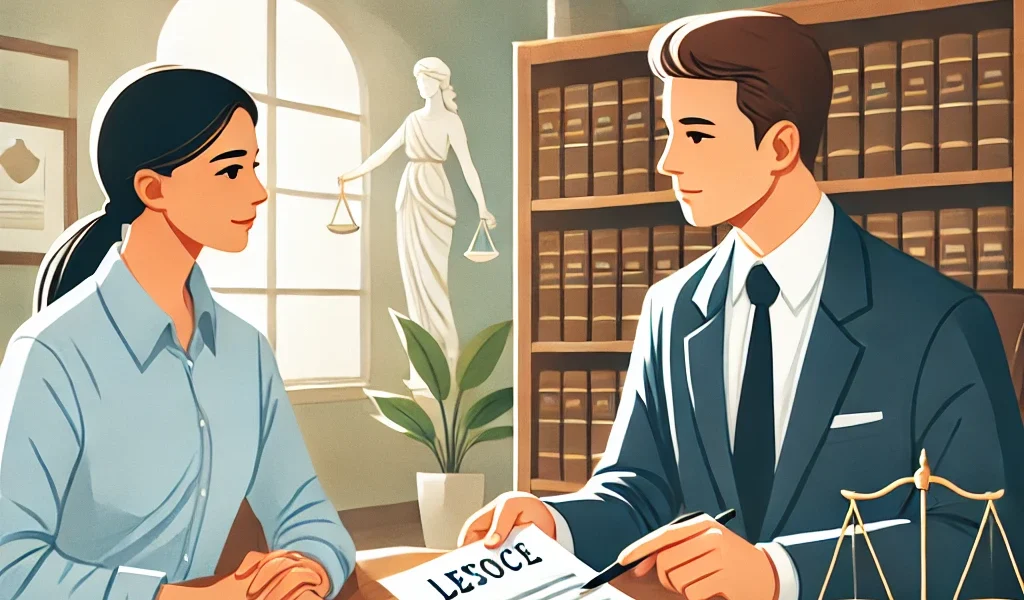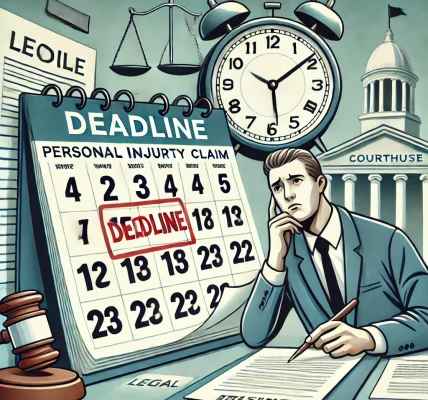Introduction
If you’ve been injured due to someone else’s negligence, hiring the right personal injury lawyer is crucial to securing the compensation you deserve. With so many attorneys available, selecting the best one for your case can be overwhelming. A skilled lawyer can significantly impact your case outcome, ensuring your rights are protected and maximizing your settlement.
In this guide, we’ll walk you through the essential steps to choosing the right personal injury lawyer, key factors to consider, and the red flags to avoid.
1. Why You Need a Personal Injury Lawyer
A personal injury attorney specializes in cases where individuals suffer harm due to accidents, medical malpractice, defective products, or workplace injuries. They help:
- Navigate the legal system
- Gather necessary evidence
- Negotiate with insurance companies
- Represent you in court if needed
Having a competent lawyer increases the likelihood of receiving fair compensation for medical expenses, lost wages, and pain and suffering.
2. Key Factors to Consider When Choosing a Personal Injury Lawyer
A. Experience and Specialization
Not all lawyers handle personal injury cases. Look for an attorney who specializes in personal injury law and has experience handling cases similar to yours. Consider:
- How many years they have practiced personal injury law
- Their success rate with similar cases
- Their familiarity with local courts and laws
B. Reputation and Client Reviews
Check online reviews and testimonials on platforms like Google, Avvo, or Martindale-Hubbell. Look for patterns in feedback, such as:
- Positive client experiences
- High success rates
- Responsiveness and professionalism
Avoid lawyers with frequent complaints about communication issues or poor results.
C. Communication and Availability
You need a lawyer who is responsive and keeps you informed throughout the case. Consider:
- Do they answer emails and calls promptly?
- Are they willing to explain legal terms in an understandable way?
- Do they provide regular updates on your case?
A lawyer who prioritizes client communication is a valuable asset.
D. Fees and Payment Structure
Most personal injury lawyers work on a contingency fee basis, meaning they only get paid if you win the case. Before hiring, ask:
- What percentage of your settlement will they take?
- Are there any upfront costs?
- Do they offer free consultations?
A transparent lawyer will outline all potential costs from the beginning.
E. Trial Experience
While most personal injury cases settle outside of court, trial experience is still essential. If negotiations fail, a skilled trial attorney can represent you in front of a judge and jury. Ask:
- How many cases have they taken to trial?
- What were the outcomes?
- Are they confident in handling litigation?
A lawyer with trial experience puts pressure on insurance companies to offer a fair settlement instead of lowballing your claim.
3. Steps to Find the Right Lawyer
Step 1: Research and Shortlist
Start by searching online for top-rated personal injury lawyers in your area. Use legal directories like:
- Avvo
- FindLaw
- Justia
- Super Lawyers
Make a shortlist of attorneys with high ratings, positive reviews, and experience in your type of injury case.
Step 2: Schedule Consultations
Most personal injury lawyers offer free initial consultations. During the meeting:
- Explain your case details
- Ask about their experience with similar cases
- Discuss their approach to handling your claim
- Get clarity on their fees and payment structure
Step 3: Evaluate and Compare
After consultations, compare your shortlisted lawyers based on:
- Experience and specialization
- Communication style and responsiveness
- Fee structure
- Case strategy and confidence
Choose the lawyer who instills the most confidence and aligns with your case needs.
4. Red Flags to Avoid
Not all lawyers have your best interest in mind. Be cautious of:
- Lawyers who guarantee a specific outcome – No lawyer can promise a win.
- High-pressure tactics – Avoid attorneys who rush you into signing a contract.
- Lack of transparency in fees – If they avoid discussing costs, consider it a red flag.
- Poor communication – If they’re unresponsive before hiring, they’ll likely be worse after.
- Bad reviews or disciplinary actions – Check state bar associations for complaints or past disciplinary actions.
5. Questions to Ask a Personal Injury Lawyer Before Hiring
To ensure you’re making the right choice, ask:
- How long have you been handling personal injury cases?
- What percentage of your cases are personal injury-related?
- Have you handled cases similar to mine? What were the outcomes?
- Do you have trial experience in case my case goes to court?
- How do you communicate updates about my case?
- What are your fees, and do you work on contingency?
- What happens if we lose the case?
- How long do you estimate my case will take?
- Who in your firm will handle my case, and can I contact them directly?
- How many cases do you currently have? Will you have time for mine?
Conclusion
Choosing the right personal injury lawyer can make a significant difference in your case outcome. By focusing on experience, reputation, communication, and fee structure, you can find the best attorney to represent you. Take your time to research, compare options, and trust your instincts before making a decision.
A qualified and dedicated lawyer will fight for your rights, ensuring you receive the maximum compensation you deserve for your injuries. If you’ve been injured, start your search today and take the first step toward justice!




